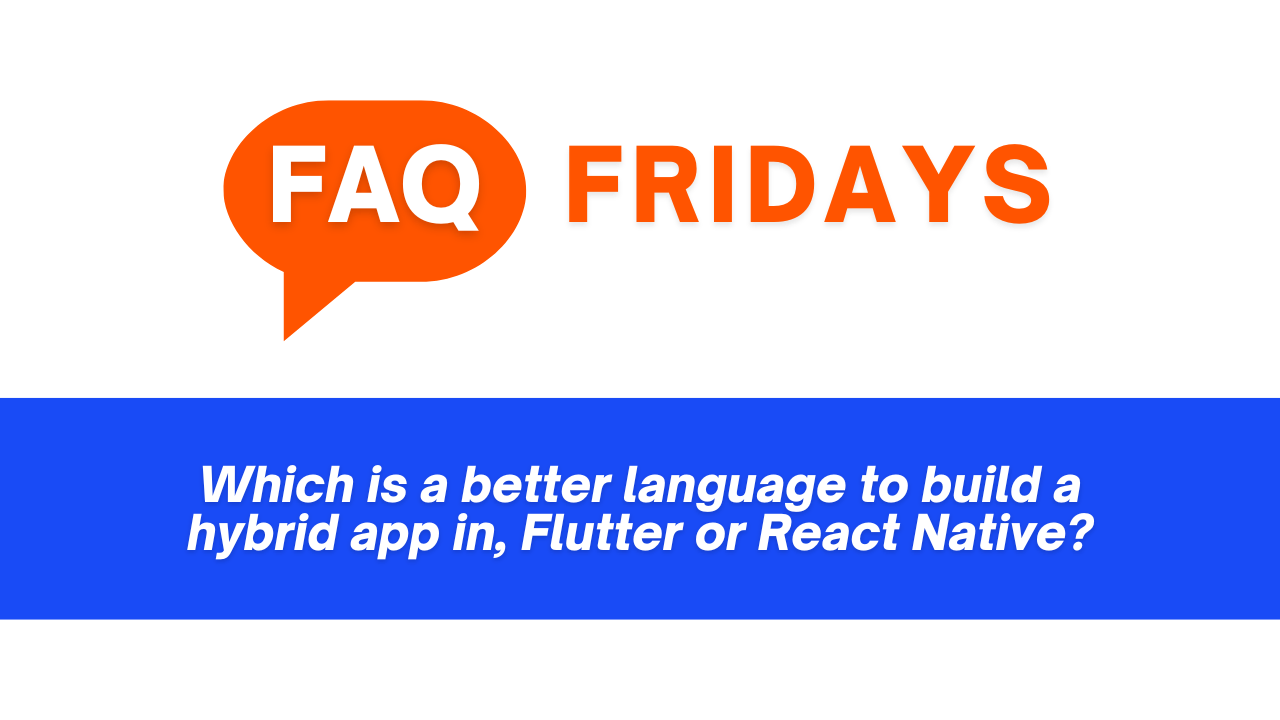Which is a better language to build a hybrid app in, Flutter or React Native?


Bruce Peck
Dec 15, 2022 · 3 min readWhat is Flutter?
Flutter is an open-source mobile application development framework created by Google. It is used to develop applications for Android, iOS, Windows, Mac, Linux, and the web from a single codebase and is relatively young (it was released in 2018.)
Flutter uses the Dart programming language and provides a rich set of widgets and tools that make it easy to quickly create beautiful and highly-customizable mobile apps.
The major upsides of Flutter is that you have one code base for multiple platforms which is less expensive to build and maintain. You also are able to write code fast with less testing. Some of the downsides are that it has a smaller developer community, and the apps are generally larger than native ones.
What is React Native?
React Native is a JavaScript framework for building cross-platform mobile applications and was created by Facebook (if that doesn’t already tell you everything you need to know…)
It allows developers to use React and native platform capabilities to create apps that are indistinguishable from apps built using platform-specific technologies and was released in 2013.
React Native also provides a large library of components, APIs, and development tools for quickly building high-quality apps for iOS and Android.
The upsides of using React Native is you get the same one code base for managing multiple platforms, with a larger developer community, using a more common language (javascript.) It also struggles with the fact that the apps are larger than native ones and its dependency on packages that may or may not be updated.
Which is Better?
The answer to this question depends on the specific needs of your project. Both Flutter and React Native are excellent choices for building hybrid apps.
Flutter is a newer framework and has a lot of momentum behind it, while React Native is more established and has a larger community.
As a company we’ve chosen to work with Flutter because we feel like it is a language in its ascendancy with a bright future ahead of it, it’s simple to use, and has consistently improved itself over time.